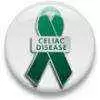-
Welcome to Celiac.com!
You have found your celiac tribe! Join us and ask questions in our forum, share your story, and connect with others.
-
Celiac.com Sponsor (A1):
Celiac.com Sponsor (A1-M):
-
Get Celiac.com Updates:Support Our Content
Storing Flour
-
Get Celiac.com Updates:Support Celiac.com:
-
Celiac.com Sponsor (A17):
Celiac.com Sponsor (A17):
Celiac.com Sponsors (A17-M):
-
Recent Activity
-
- Jmartes71 commented on Scott Adams's article in Multiple Sclerosis and Celiac Disease4
Gluten-Free Diet Linked to Reduced Inflammation and Improved Outcomes in Multiple Sclerosis (+Video)
Thankyou I did reach out to a dietitian from this website and since popular there's a bit of a wait at first, My appointment I believe is in June on zoom.Going in to see pcp about medication im having a reaction from, told neurologist and she said its a common affect so need to ck and see if thsts through case this afternoon. This nightmare could easily been...- autoimmune disease
- celiac disease
- (and 7 more)
-
- Scott Adams commented on Scott Adams's article in Product Labeling Regulations2
FDA Moves to Improve Gluten Labeling—What It Means for People With Celiac Disease
You’re raising a very real and very well-documented problem, and you’re absolutely right to be frustrated. Medication labeling is a major blind spot for people with celiac disease, because unlike food, drug manufacturers are not required to clearly disclose the source of binders, fillers, or excipients—even when they may be derived from wheat. That puts ...- celiac disease
- fda
- (and 8 more)





Recommended Posts
Archived
This topic is now archived and is closed to further replies.